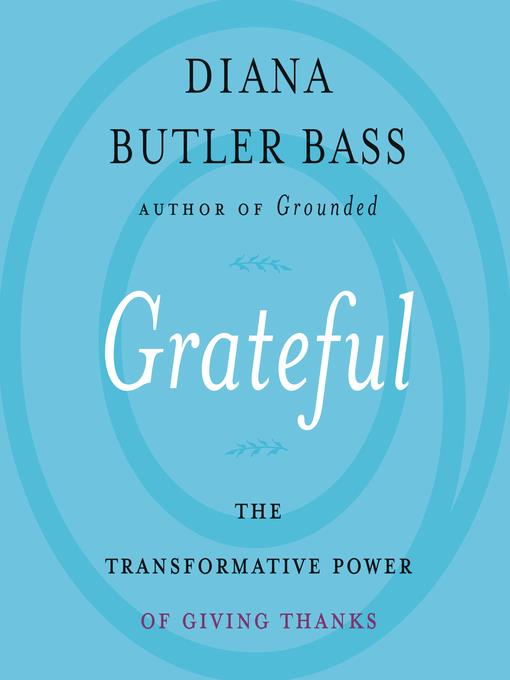
Grateful
The Transformative Power of Giving Thanks
کتاب های مرتبط
- اطلاعات
- نقد و بررسی
- دیدگاه کاربران
نقد و بررسی

Diana Bass narrates her own work on gratitude. Her patience and passion reflect her understanding that this traditional practice will be hard to teach to a new generation ensconced in the social media age of disagreeing with others with take-no-prisoners criticism. Though she teaches from her perspective of Christianity, she strives to relate to all of humanity, offering numerous other religious and nonreligious recommendations for showing gratitude. Her articulation and pace permit one to listen closely while also thinking about how to put the principles advocated into practice immediately. More sociological than theological, this work is a much needed corrective to our current relationship conflicts. T.D. � AudioFile 2018, Portland, Maine

Starred review from February 12, 2018
Bestselling author and scholar Bass (Grounded) takes two seemingly contradictory recent surveys of the mood of Americans as the jumping off point for her excellent call for a more conscientious practice of gratitude. Eight out of 10 Americans feel “a strong sense of gratitude or thankfulness,” according to the Pew Research Center. At the same time, the Public Religion Research Institute finds that Americans are “more anxious, less optimistic, and more distrustful” than ever before. Bass asks how both could be true. Her answer focuses on what she calls the “gratitude gap,” and she writes that most people feel grateful when “someone does us a favor or when greeted by a beautiful surprise” but also feel a “sense of powerlessness from thinking we will never have enough.”
To close this gap, Bass asks readers to consider how they express gratitude. She believes that most people have an “imbalance of gratitude” and suggests ways of rethinking how to give thanks in order to find “communal gratefulness.” For example, someone who feels gratitude while listening to the national anthem should also think about how to contribute to public service, and someone who feels obligated to send thank-you notes might need to consider actions that would express deeper thanks. Bass’s persuasive book will please her longtime fans as well as readers interested in living a more productively thankful life.

Starred review from June 15, 2018
Does gratitude simply mean thank you notes and politeness? Bass (Grounded) delves into the spiritual aspects of gratitude and the life and world-changing effects of practicing gratefulness in personal and civic spaces. Her aim is to illustrate that "gratitude is not a transaction of debt and duty. Rather, gratitude is a spiritual awareness and a social structure of gift and response." By weaving a picture of gratitude as both a "me" and a "we" response composed of ethics as well as emotions, the author successfully creates a four-fold picture of thanks as a way of life. Although writing as a Christian, Bass includes other religious and nonreligious viewpoints, asserting that even politics can be transformed by changing from a quid pro quo system to one that is pro bono, based on gifting and gratitude rather than payment and debts. Personal anecdotes and spiritual insights enrich this portrait of gratitude as a goal and way of life. VERDICT Will appeal to the spiritually minded seeking an encouraging and challenging read. Strongly recommended for libraries of all types.--Ray Arnett, Anderson, SC
Copyright 2018 Library Journal, LLC Used with permission.

April 1, 2018
Author Bass self-deprecatingly calls herself a gratitude klutz. She is too modest, for readers will note that that assertion has not stopped her from writing an insightful, illuminating, and thought-provoking book on the subject, one that is simultaneously a meditation and celebration. Bass divides her material into four parts. Two examine the me, the personal, and two the we, the communal. In all four she discusses traditional gratitude as an exercise in reciprocity expressed in the hierarchical structure?the quid pro quo, that is, the tit for tat?ultimately arguing, instead, for a pro-bono approach where gratitude is freely given with no expectation of receiving something in return. If the book has a fault it may be a tendency to discursiveness and prolixity. But gratitude is a large subject that invites expansive attention, and that is all to the good. And accordingly many readers will be grateful for the book's insights, opportunities for consideration, and invitation to action. Live, as Bass concludes, in gratitude.(Reprinted with permission of Booklist, copyright 2018, American Library Association.)

























دیدگاه کاربران